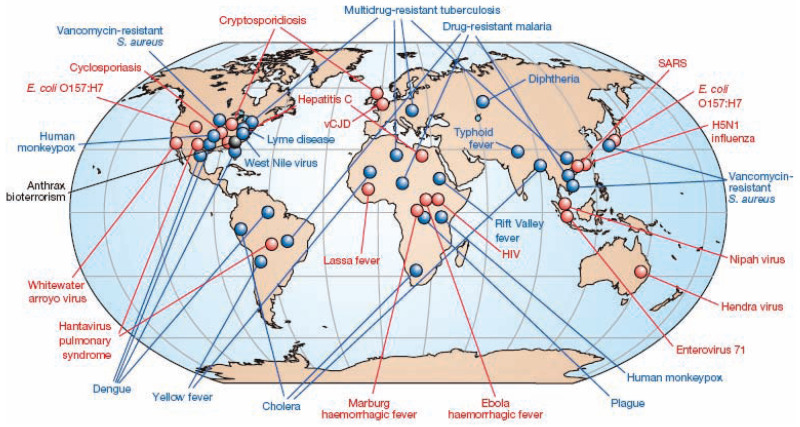Immigration
What kind of issue is immigration? A political issue? A public health issue?
A social issue? A humanitarian issue?
Not an issue? Does it matter if it’s illegal vs legal? Is that the issue?
What would you think if you lived somewhere else and the US gave things free that you wanted? It would be like lining up in front of Circuit City in December to get a real deal. People camp out to get ‘freebies’. They suffer long lines and put themselves out. Prenatal care is free, for pregnant women. WIC is free for mothers with children. Health care is free at hospitals with the “Migrant Health Funds”, to offset any unpaid bills.
What would you think if you lived somewhere else that did not allow you personal freedom? We have personal freedoms ( to a degree) here in the US. Of course, if you could go where you felt you would have a better life, you would try to get there and make a new life. Of course you would expect to follow all the rules and regulations- starting with arrival. There are health examinations and due processes for a legal residency with a green card. http://www.uscis.gov/sites/default/files/files/form/i-693.pdf
What if you came here illegally? What is you didn’t have the knowledge or money or interest to come to this country through legal channels?
Wouldn’t that indicate that you might have issues? If you arrive illegally, you probably have not had the appropriate immunizations or medical clearance.
How does that impact the US citizens? It could introduce diseases into the population that are endemic in the country of origin, but not here in the US.
Hepatitis A is endemic in Mexico. Mexico has Tuberculosis rates 5 x higher than the US. Ricketsia, histoplasmosis, parasites, respiratory flu, malaria, dengue, brucellosis,amebiasis, typhoid, rabies, and a host of infectious diseases that are rarely seen in the US. The visa testing includes Syphilis, HIV, leprosy, gonorrhea, chancroid and TB.

Hepatitis B is highly endemic in all of Africa, some parts of South America, Alaska, northern Canada and parts of Greenland, eastern Europe, the eastern Mediterranean area, south-east Asia, China, and the Pacific Islands, except Australia, New Zealand and Japan. In most of these areas, 5 to 15% of the population are chronically infected carriers of HBV, and in some areas may also carry HDV, which may lead to severe liver damage.http://www.who.int/csr/disease/hepatitis/whocdscsrlyo20022/en/index4.html
Essentially, this is not a political issue, although it is a national security interest. It is not a humanitarian issue, although people seek asylum for various reasons. This is a health issue. A public health and infectious disease concern that is underemphasized.
The concern with the recent headlines of children flooding the borders has shocked the system.60,000 to 80,000 minors, in need of housing, care, medical treatment and transportation, are expected to cross the border this year. In May alone, the Border Patrol apprehended an unprecedented 9,000 minors. http://www.who.int/csr/disease/hepatitis/whocdscsrlyo20022/en/index4.html
Why are these children from central and south America coming across the border? Is the US Homeland Security change in policy? “In each case, the DHS completed the criminal conspiracy, instead of enforcing the laws of the United States, by delivering the minors to the custody of the parent illegally living in the United States,” he added. Illegal parents are paying to have their children delivered to them and the US government officers are escorting them to the illegal resident and ignoring the illegal acts. http://www.newsweek.com/why-are-children-flocking-us-mexico-254371
Housing large numbers of children with endemic diseases, without focusing on the public health issues is overlooking a major threat to the health of US citizens and the children in close proximity to those with infections. Morse noted there are two distinct stages to emergence of infectious disease – introduce it to a new population and then watch it establish and disseminate itself within the population.http://www.ncbi.nlm.nih.gov/books/NBK45714/
In essence, this is more about a disaster that has created more orphans than any known wars or natural disasters in our lifetimes. Imagine this many orphans? It’s unimaginable. The churches are in the best position to serve the needs of widows and orphans. It is their sworn mission as believers in the biblical teachings. It is within their jurisdiction to help. It is part of their ongoing work, to help the less fortunate. Children are to be protected from harm and provided with the essentials by the church.
Psalm 68:5 “Father of the fatherless and protector of widows is God in his holy habitation.”
Exodus 22:21 “You shall not wrong a sojourner or oppress him, for you were sojourners in the land of Egypt. You shall not mistreat any widow or fatherless child.”
That does not negate the concern of vectors of disease. These children are helpless and deserve restoration to their parents or a safe environment with parenting of caring adults. At the same time, the concern for disease transmission to the hosting parents and organizations needs to be acknowledged and addressed. The churches are a better stop gap solution than government. They have the heart that is missing from a political organization. The government’s role could be communicable disease control and funding allocations.
They have the heart that is missing from a political organization. The government’s role could be communicable disease control and funding allocations.
Travel? Bringing endemic pathogens to new areas and new people. There is a fine balance between serving the needs of children immigrants and protecting the host nation’s children from unforeseen diseases.
http://www.ncbi.nlm.nih.gov/books/NBK45714/figure/ch5.f8/?report=objectonly



Comments are closed, but trackbacks and pingbacks are open.